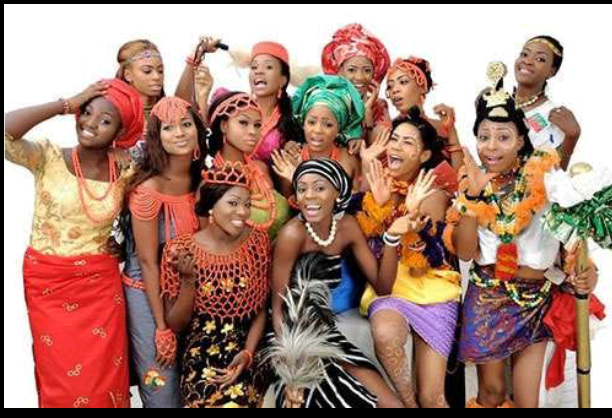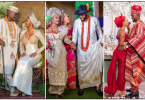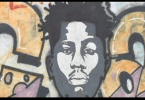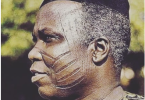Nigeria is a cultural melting pot of ancient traditions, histories, languages, values, proud kingdoms, native wisdom, food, and of course traditional attires. In spite of the strong influences of surrounding West African cultures, and that of the Western world, Nigerians highly esteem their culture. The amazing variety of traditional attires that make up Nigerian fashion are too interesting to ignore. The accessories, colors, patterns, and the wearers all have unique and interesting stories of cultural heritage combined with their personal identities.
Indeed one of the best ways to understand a Nigerian is by exploring and appreciating their cultural backgrounds. You may not need to search very far. Nigerians easily express their cultural and individual identities through their language, mannerisms, and traditional attire. And they can boast of their cultural heritage anywhere across the world with confidence. To compliment a typical Nigerian for his/her cultural self-expression is an express invitation to earning his/her quick trust and cooperation.
But what is the importance of the numerous traditional attires that make up Nigerian fashion? We will briefly examine the reasons why Nigerians wear their traditional attires, and the major elements that constitute Nigerian fashion.
Why Do People Wear Clothes?
Clothes have been known to serve largely functional purposes from the dawn of civilization. But the purpose for wearing clothes have evolved over the ages. It is quite obvious that clothes provide protection and warmth, thus shielding the wearer from the harsh effects of weather elements. Clothes are also a barrier against insects, and poisonous or contagious objects. However, some historians argue that the original reasons for wearing primitive clothes and adornments are likely not for protection. Rather, they were meant for ritual or religious purposes.
Over the ages, functional reasons for wearing clothes gradually gave way to social purposes. Your clothes are often a means of self expression. A person’s manner of dressing projects how he/she perceives himself to others. It shows how a person wants to be seen (and treated). In fact, your dressing can contribute to your self-esteem, and even boost your mood – leading to better social interaction and performance. Your clothes go further to reveal your social position and level of affluence, and not just your personality and self-perception.
The Importance of the Traditional Attires that Make Up Nigerian Fashion
Traditional attires comprise more than just typical clothing materials indigenous to each culture. They include an assortment of accessories, jewelry, patterns, colours, and peculiar styles that are identified with each ethnic group. Each traditional attire or costume gives a glimpse into the history and ancient heritage of the wearers.
Some of the reasons why Nigerians wear their traditional attires include the following:
Traditional Attires as Symbols of Identity
Traditional attires (and the manner in which they are worn) often express both the wearer’s individual and group cultural identities. A wearer often desires to strongly project his/her individuality, while at the same time identifying with his/her cultural heritage. And your attire can easily project your social status within the community as well. Thus, one would see all manner of unique yet similar cultural attires at cultural and social events where people come together in Nigeria.
Traditional Attires as Symbols of Unity
A typical feature of Nigerian fashion is seen in how Nigerians wear traditional attires to grace an important social event – especially traditional and religious gatherings, as well as social events. It is often a show of togetherness, a mark of unity and well-wishes. It is an opportunity to share dreams and aspirations, build relationships, and celebrate with friends and family.
A typical example that demonstrates the spirit of unity through wearing traditional attires is the common ‘Aso Ebi’ custom among the Yoruba people. Wearing the same traditional attire to a social event that involves family and friends gives you a feeling of mutual bonding with other wearers.
A Show of Creativity
Traditional attires are often an opportunity for experienced tailors and fashion designers to showcase their creativity. It also demonstrates the unique tastes and dress sense of the wearer. It helps to bring out the beauty of the wearer, as well as the artistry of the designer.
A Powerful Means of Communication
A lot of traditional African clothing comes with special colors, patterns, symbols, and names that have meanings. They can be used to tell stories of ancient history, personal life experiences, folklore, legends, proverbs, and even emotions to others. They can even reveal a person’s gender, social class, position (such as religious or cultural titles), profession, and/or cultural identity. Traditional attires can also be used to mark an occasion by clearly showing illustrations on the cloth to reveal the event.
Traditional Attires Can Command Respect
Donning a traditional attire to worship centers, festivals and social gatherings can give you a special, respectable and noble appearance. You are seen as matured and responsible by others around you. And it can also make you look and feel good among your kinsmen and acquantances.
Traditional Attires Can Boost Your Self-Image
Wearing traditional attires that truly complement your looks can boost your morale, confidence, and self-image amongst peers and family. It will also improve other people’s perception of the wearer.
Traditional Attires Can Induce Nostalgia
Traditional attires are often a means of connecting with your culture and ancestral roots. This is even more important amongst people living in the diaspora. It gives a feeling of returning ‘home’ and connecting with the familiar.
Elements That Make Up Nigerian Fashion
The typical elements that make up Nigerian fashion include beads and head coverings (such as caps/hats, Gele, scarfs, Iborùn, and Turban). Colourful tops, wrappers, skirts and trousers, sewn in different styles, are also very common. Double wrappers and loincloths with beautiful lace (or Senator material) blouses and tops are typical of Igbo and Niger Delta tribes. There is the iconic Iro and Buba, popularly worn by women in Yorubaland and some Middle Belt tribes. While the equally iconic Agbada, Danshiki, Buba and Soro/Sokoto (trousers) are commonly worn by men across both Hausaland and Yorubaland.
These traditional attires are sewn using a range of indigenous and imported materials. They include Aso Oke, Adire, Batik, Ankara, Kente, Senator, Lace, George, Damask, Jacquard, and Suede materials in different colours, patterns and varieties.
The use of horsetails, walking sticks (staffs), and hand fans is also a common feature of male traditional attires that make up Nigerian fashion.
In Conclusion
Nigerian fashion is a celebration and appreciation of age-old culture and heritage in amazing diversity, through wearing of traditional attires. They are commonly worn during festivities, cultural festivals, religious gatherings, funerals, and celebrations involving family and/or friends. And we value their preservation and continuity.







